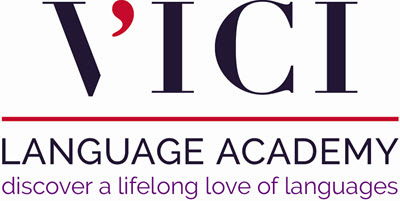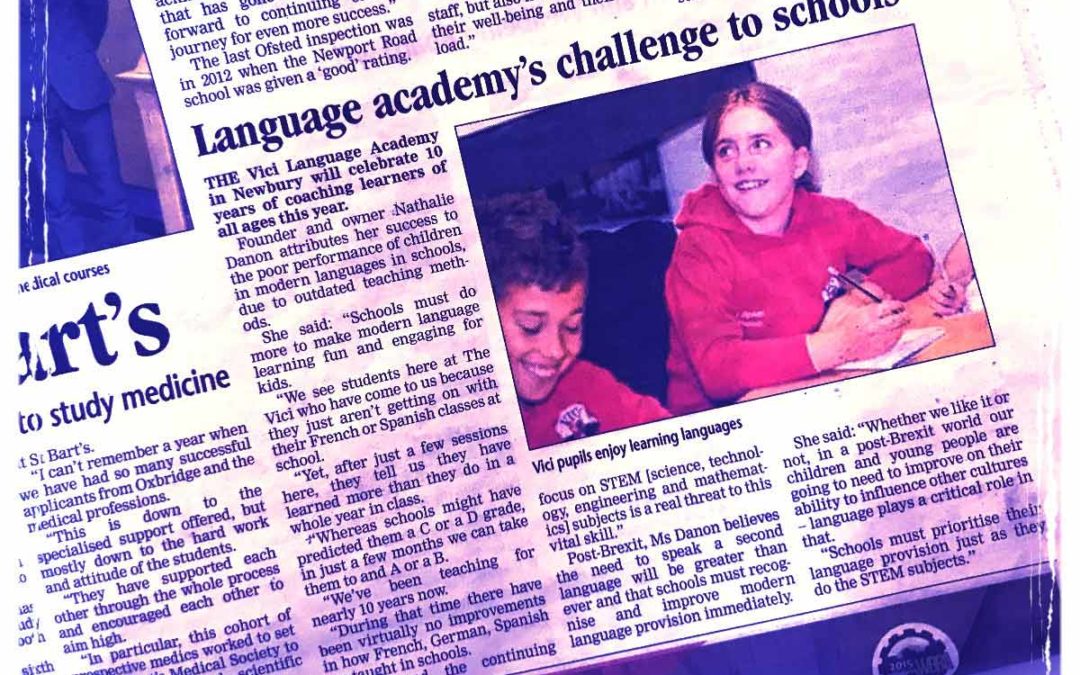This year, we will celebrate ten years of coaching learners of all ages.
Of the record 5.7 million small businesses operating in the UK today, less than half will survive beyond five years, let alone ten, yet we continue to go from strength to strength. Something we are rather proud of!
We work tirelessly to promote the importance of having a second language. And it’s a tough job with the UK remaining bottom of the list when it comes to communicating beyond the mother tongue. Despite various government initiatives, less than one in four children manages to obtain a good GCSE in a modern language, less than 5% achieve two. Ironically, I have to attribute our success in part to exactly this issue.
Schools must simply do more to make language learning fun and engaging for kids. We see students here at The Vici who have come to us because they just aren’t getting on with their French or Spanish classes at school. Yet, a few sessions here, and they say they are learning more than they do in a whole term at school! Whereas schools might have predicted them a C or a D grade, in just a few months we can take them to an A or a B. We’ve been teaching for nearly ten years, and during that time there have been virtually no improvements in how French, German, Spanish are taught in schools.
So, what should schools be doing differently? They should be employing more of the tactics that have proven to be so successful at The Vici:
Nothing we do is rocket science, but our method is to immerse our students in the language and expose them to it through as many channels as possible. They sing songs, write stories, watch TV! Most of the time they don’t even know they are learning! That’s how to encourage a lifelong love of languages, not by endlessly conjugating verbs and paraphrasing sentences.
The Born Global Study by the British Academy, found many young people lose out on business opportunities because they only communicate in English and therefore lack an international business sense. The assumption is often that everyone will speak English and that meetings and transactions will be in the common language. But is this outdated, and worse, insulting to those we are so keen to trade with?
Post-Brexit, the need to speak a second language will be greater than ever and that schools must recognise that in their curriculum provision.
Whether we like it or not in a post-Brexit world our children and young people are going to need to improve their ability to influence other cultures, language plays a critical role in that. Schools must prioritise their language provision just as they do the STEM subjects.
Lauren came to Vici aged just 4. Ten years on and is she fluent? The answer is yes. So how would Lauren describe the whole experience? Was it a chore? Did it mean hours of extra homework?
There’s little doubt that the British economy will benefit if we put the focus firmly back on modern language provision, but if Vici students are anything to go by, the impact on the individual can be huge too.
I will remain hopeful that things can change and thank you to the Newbury Weekly News to help us raise our concern and have a voice in our local community.
Have a great week-end!
Nathalie

